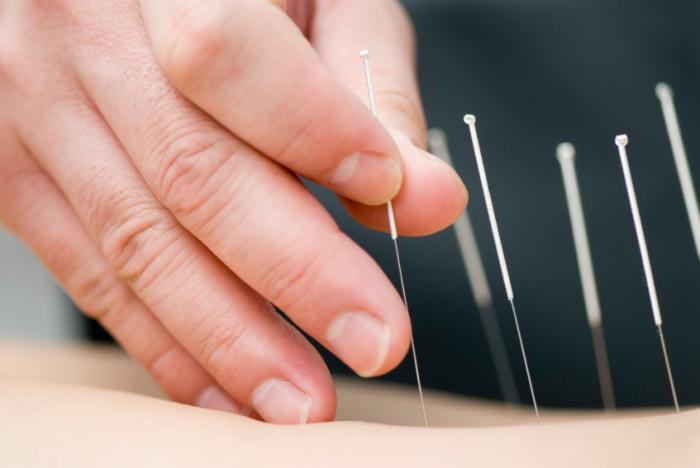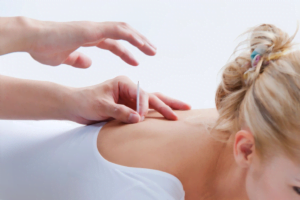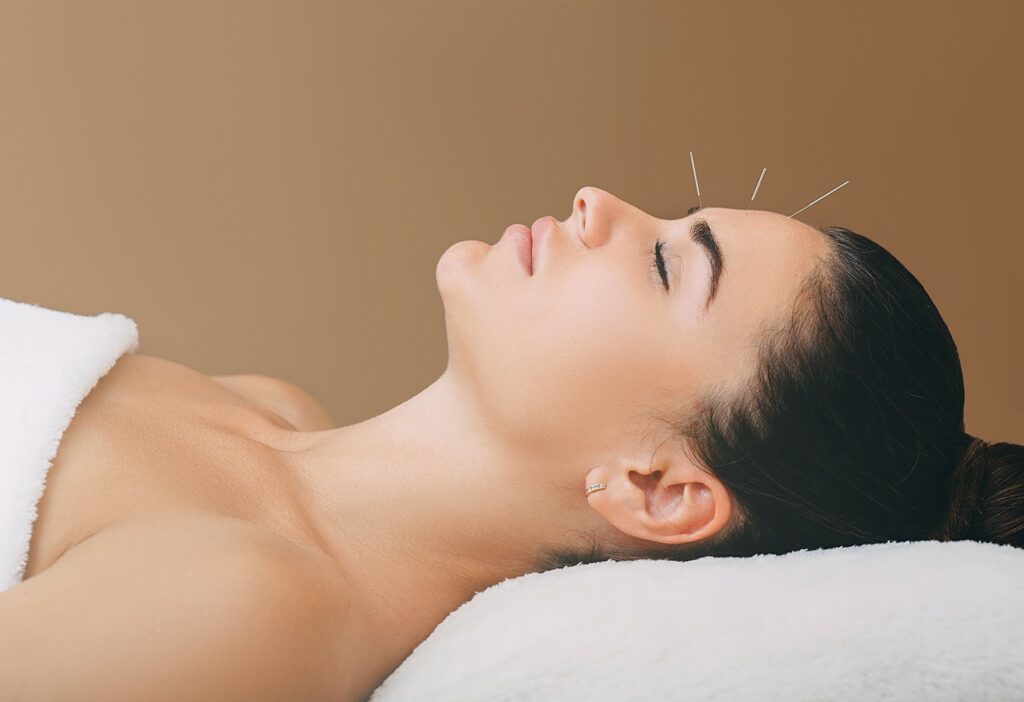Menopause is a transformative phase in a woman’s life, representing the end of her reproductive years and often accompanied by a cascade of physical and emotional changes. Hot flashes, mood swings, sleep disturbances, and hormonal imbalances can make this transition challenging. In the quest for holistic and alternative approaches to managing menopausal symptoms, many women are turning to the ancient practice of acupuncture. This blog explores the potential benefits of acupuncture for menopause, shedding light on its mechanisms and the relief it may offer.
Contents
Understanding Acupuncture
Acupuncture, a cornerstone of traditional Chinese medicine, is built on the belief that the body’s energy, or Qi, flows along pathways called meridians. Menopausal symptoms are seen as disruptions or imbalances in this energy flow. Acupuncture involves the insertion of thin needles into specific points along these meridians, aiming to restore balance and promote overall well-being.
How Acupuncture Works for Menopause?

The mechanisms through which acupuncture works for menopause are complex and multifaceted, involving both traditional Chinese medicine principles and modern physiological considerations. Here’s a breakdown of how acupuncture is believed to work in alleviating menopausal symptoms:
Energy Balance and Qi Flow
According to traditional Chinese medicine (TCM), the human body is traversed by channels or meridians through which vital energy, known as Qi, flows. Menopausal symptoms are often attributed to imbalances in the flow of Qi. Acupuncture involves the insertion of thin needles into specific points along these meridians, aiming to stimulate and rebalance the flow of energy. By restoring harmony to the body’s energetic pathways, acupuncture addresses the root causes of menopausal discomfort.
Hormonal Regulation
Modern research suggests that acupuncture may influence the endocrine system, which is responsible for hormone production and regulation. Menopause involves a decline in estrogen and progesterone levels, leading to various symptoms. Acupuncture is believed to stimulate the release of neurotransmitters and hormones, such as beta-endorphins, serotonin, and cortisol, which can modulate hormonal imbalances associated with menopause.
Nervous System Modulation
The insertion of acupuncture needles at specific points triggers the nervous system’s response. This can involve the activation of the parasympathetic nervous system, often referred to as the “rest and digest” system, leading to a state of relaxation. By calming the nervous system, acupuncture may help alleviate stress-related symptoms commonly experienced during menopause, such as mood swings and anxiety.
Hypothalamic-Pituitary-Adrenal (HPA) Axis Regulation
The hypothalamus, pituitary gland, and adrenal glands form the HPA axis, a crucial system involved in stress response and hormone regulation. Acupuncture is thought to influence the HPA axis, modulating the release of hormones that play a role in menopausal symptoms. This regulation may contribute to improvements in sleep, mood, and overall well-being.
Blood Flow and Circulation
Acupuncture has been associated with improved blood circulation. In the context of menopause, enhanced blood flow to specific areas, such as the pelvic region, may contribute to addressing symptoms like vaginal dryness. Improved circulation can also support overall health and vitality.
Placebo Effect and Psychological Well-being
The ritualistic nature of acupuncture, coupled with the therapeutic relationship between the practitioner and patient, can contribute to a placebo effect. This psychological component may play a role in symptom relief by positively influencing perceptions of well-being and symptom severity.
Techniques of Acupuncture for Menopause
Here are some common techniques and strategies employed in acupuncture for menopause:
Traditional Body Acupuncture
This is the most common form of acupuncture, where thin needles are inserted into various acupuncture points throughout the body. The selection of points may be based on traditional meridian theory or tailored to address specific menopausal symptoms. Furthermore, for example, points associated with hormonal regulation, stress reduction, and overall balance may be targeted.
Auricular Acupuncture
In auricular acupuncture or ear acupuncture, needles are inserted into specific points on the ear corresponding to different body parts and functions. This technique is often used to address a wide range of conditions, including menopausal symptoms. Furthermore, the ear is considered a microsystem reflecting the entire body, making it a targeted and precise approach.
Scalp Acupuncture
Scalp acupuncture involves inserting needles into specific points on the scalp. This technique is often used for neurological and hormonal conditions. In the context of menopause, it may be applied to address symptoms related to the nervous system, hormonal regulation, and overall well-being.
Electroacupuncture
Electroacupuncture involves attaching small electrodes to acupuncture needles, allowing for a gentle electric current to pass through. This technique is thought to enhance the effects of traditional acupuncture by providing continuous stimulation. Electroacupuncture may be applied to specific points associated with menopausal symptoms to modulate the nervous system and hormonal balance.
Moxibustion
Moxibustion involves the burning of dried mugwort (Artemisia vulgaris) near the surface of the skin or on acupuncture needles. This technique is often used in conjunction with acupuncture to warm and stimulate acupuncture points. Furthermore, in menopause, moxibustion may be applied to points associated with the Kidney meridian, which is significant in traditional Chinese medicine for its role in hormonal balance.
Cupping Therapy
While not a needling technique, cupping therapy is sometimes used in conjunction with acupuncture. Cupping involves placing cups on the skin to create suction, promoting blood flow and relieving muscle tension. It may be applied to areas associated with specific menopausal symptoms, such as the upper back and shoulders for relief from tension and stress.
Herbal Medicine
Some acupuncture practitioners may also recommend traditional Chinese herbal medicine to complement acupuncture treatments for menopause. Customized herbal formulations may be prescribed based on an individual’s specific symptoms and constitution.
It’s important to note that the choice of acupuncture techniques and points can vary based on the practitioner’s training, the individual’s symptoms, and the overall treatment strategy.
Benefits of Acupuncture for Menopause

While individual responses may vary, many women report positive outcomes from incorporating acupuncture into their menopausal care. Here are some of the potential benefits of acupuncture for menopause:
- Hot Flash Relief: Acupuncture has been shown to reduce the frequency and intensity of hot flashes, providing relief from the sudden and intense heat sensations commonly experienced during menopause. The precise stimulation of acupuncture points is believed to influence the body’s temperature regulation mechanisms.
- Mood Stabilization: Menopausal hormonal fluctuations can contribute to mood swings and increased stress. Acupuncture’s impact on the nervous system may help regulate mood and reduce symptoms of anxiety and irritability, promoting emotional well-being.
- Improved Sleep Quality: Sleep disturbances are common during menopause, often linked to hormonal changes and increased stress. Acupuncture’s calming effect on the nervous system may contribute to better sleep quality, helping women manage insomnia or disrupted sleep patterns.
- Hormonal Balance: Acupuncture is thought to influence the endocrine system, which regulates hormone production. By stimulating specific points, acupuncture may help balance hormones, including estrogen and progesterone, addressing imbalances associated with menopause.
- Vaginal Health: Acupuncture’s ability to enhance blood circulation may contribute to improved vaginal health. This can be particularly beneficial in addressing symptoms. These are such as vaginal dryness and discomfort during intercourse, enhancing overall comfort and well-being.
- Bone Health Support: Menopausal women are at an increased risk of bone density loss. Some studies suggest that acupuncture may positively impact bone health by influencing hormones related to bone metabolism. These are potentially reducing the risk of osteoporosis.
- Stress Reduction: Acupuncture sessions are known for their relaxing and stress-relieving effects. Reducing stress is crucial during menopause, as high-stress levels can exacerbate symptoms. Acupuncture’s ability to induce relaxation may contribute to an improved overall sense of well-being.
Sources To Get Acupuncture for Menopause

While many acupuncture sessions are traditionally conducted in person, there is a growing trend toward online platforms that offer virtual consultations with licensed acupuncturists. Here are a few online providers where you can explore acupuncture services for menopause:
- Hermantra: Hermantra offers virtual acupuncture consultations with licensed acupuncturists. They provide personalized treatment plans for various health concerns, including menopausal symptoms.
- Modern Acupuncture: Modern Acupuncture has locations across the United States, and some offer virtual consultations. They focus on making acupuncture more accessible and convenient for individuals seeking relief from various health issues, including menopause.
- Alma: Alma is an online platform connecting individuals with licensed acupuncturists for virtual sessions. Furthermore, users can book appointments, attend sessions through video calls, and receive personalized care plans.
- TelaCare: TelaCare is a telehealth platform that connects users with healthcare professionals, including acupuncturists, for virtual consultations. It offers convenient access to acupuncture services from the comfort of your home.
Conclusion
As women seek comprehensive and personalized approaches to manage the challenges of menopause, acupuncture emerges as a time-tested and holistic option. By addressing the root causes of symptoms and promoting overall well-being, acupuncture offers a path to serenity during this transformative phase of life.
As with any healthcare decision, it’s crucial to engage in open communication with healthcare providers to ensure that acupuncture aligns with individual needs and complements existing treatment plans. The journey through menopause is unique for every woman. The healing touch of acupuncture provides a potential source of comfort and empowerment during this significant life transition.
If you are facing menopause-related issues, menopause treatment at HerMantra can help. Book your free trial online menopause treatment session now.


